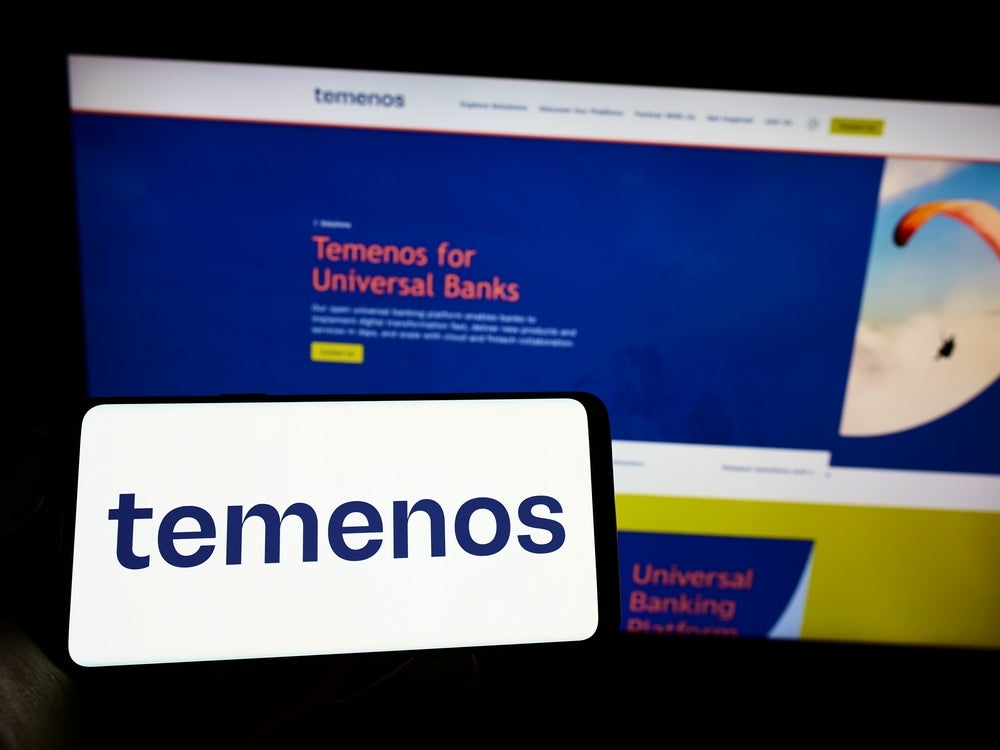industry will have knock-on effects in the outsourcing and
processing industry, and nowhere is this more apparent than in the
area of cards and payments. Victoria Conroy
reports on the increased importance of outsourcing in Europe.
As SEPA approaches, a wave of consolidation has swept over both the
banking industry and the processing industry – banks are getting
bigger and more capable of handling their own operations, while
processors continue to hunt for acquisitions and mergers in the
chase for increased volumes. These two factors may be at opposite
purposes, but both will have a direct impact on the outsourcing
industry.
In relation to consolidation in processing, a clear trend is
emerging, which is markedly different to the previous trend of
smaller processors being acquired by larger ones, as exemplified by
the likes of First Data and TSYS acquiring smaller rivals or
complementary businesses. In preparation for the transformation
that is ahead in Europe, a number of European processing houses and
automated clearing houses (ACHs) have combined operations in order
to offer a much greater range of services that evolving payment
technology will demand. Examples include the UK’s ACH Voca and
payment processor Link, and Italian ACH SIA and payment processor
SSB.
The most recent example of this trend came in late September with
the announcement that pan-European payment processor Equens and
Italian processor Seceti would establish a joint new company.
Together, both companies will annually process 8.7 billion payments
and switch 3 billion POS and ATM transactions. As a result of the
combined volumes, they will become the largest pan-European
processor in Europe with a market share of 12 percent.
Increasing volume, decreasing costs
The hunt for transaction volume is also underpinning the
consolidation taking place in Europe’s banking industry, while at
the same time strengthening the business case in favour of
outsourcing. In order for European banks to secure a top-tier
position in the post-SEPA payments market, increasing transaction
volumes while reducing costs will be crucial. According to the 2007
World Payments Report, published by Dutch bank ABN AMRO, the
European Financial Management & Marketing Association (EFMA)
and global business consultancy Capgemini, banks will need to
process at least 5 billion payment transactions per year to remain
competitive. The volume-driven nature of Europe’s payment market,
which is increasingly cross-border, will make banks look at
outsourcing key components of their payments operations in ever
greater numbers.
How well do you really know your competitors?
Access the most comprehensive Company Profiles on the market, powered by GlobalData. Save hours of research. Gain competitive edge.

Thank you!
Your download email will arrive shortly
Not ready to buy yet? Download a free sample
We are confident about the unique quality of our Company Profiles. However, we want you to make the most beneficial decision for your business, so we offer a free sample that you can download by submitting the below form
By GlobalDataAccording to the report, from both an offering and demand
perspective, several levers will empower the outsourcing market.
Standardisation efforts in response to SEPA will help broaden the
outsourcing offerings, and at the same time, demand in the market
will grow, as small and mid-sized banks seek to rationalise their
payment costs via outsourcing.
Insource or outsouce?
CI asked Martin Wilson, chief commercial officer at VocaLink, and
Carl Clump, CEO of global payment processor and solution provider
Retail Decisions, whether banking industry consolidation could lead
to banks choosing to insource rather than outsource certain payment
operations.
Wilson said: “There are some multinationals that are clearly
focused on capitalising on their scale of operations and their
payments platforms. While there may be a tendency for the
multinationals to consolidate and insource rather than outsource,
actually the economics work quite differently. The interesting
dynamic is that even the largest players can make significant
operational savings by using centralised infrastructures and
centralised payment processors such as VocaLink.
“We did a recent study into the operational costs of running a
payment infrastructure, and for the UK market we save the UK
banking industry some €300 million [$423 million] per annum.
Multinationals are forming their own strategies that may or may not
include central infrastructures, but the mid-tier banks can remain
competitive in an ever-increasing competitive market if they start
to look at their sourcing options and look at central
infrastructures, look at the scale operators and start to make
sourcing decisions around collaboration with each other and with
central infrastructures such as us.”
Clump said that although banks may be more confident in bringing
certain functions back in-house, there are some strategic functions
that may be better served by handing them to an external party.
“You would think that larger entities may think they could deliver
a better service by in-sourcing, but in the area of fraud
prevention for example, it’s difficult for them to do so because
they have a very one-dimensional view of the world from their
perspective,” he said.
“The key activity that we operate for card issuers is fraud
prevention. Because we work for a number of issuers we have a very
broad spectrum of experience, far more so than an individual
organisation can have. We have a better decisioning process. We
provide fraud prevention services on an international basis – we
very often see a retailer, for example in the US, that’s being hit
by a concerted fraud attack. We stop that fraud from happening, but
at the same time we can protect all our other clients. At a later
point we will see exactly the same type of fraud attack being
perpetrated on a different merchant in a different geography. We
can see that trend, whereas a single bank entity wouldn’t be able
to spot that, therefore their decisioning process wouldn’t be as
good.”
Outsourcing for cost reduction
The current economic climate may also lead banks to consider
outsourcing. The US subprime mortgage fallout and the ensuing
credit crunch have forced banks to reconsider their profitability
projections, and could mean that they increasingly use outsourcing
as part of their cost reduction efforts.
Wilson said: “I think that banks will react quite cautiously in
terms of the turbulence – it’s another factor that accentuates the
dynamics that we’re seeing in the payments industry. Those dynamics
are a massively increasing rate of change, increasing costs in
development and operation, increasing competition and reducing
revenues. What we’ve seen is a huge number of disruptive influences
on an industry that’s been very stable for many years. This is just
one other disruptive factor, and ultimately, something’s got to
snap or change, because not all banks can run their payment
operations and keep up with the pace of change and remain
competitive, which is why they’re looking at their sourcing
options. We’re at the dawn of a significant shift in this industry
brought about by all of those factors.”
Clump said that there are already signs that banks are reacting to
market turbulence by looking at outsourcing. “There’s no question
about it. We know that we have a lower cost base than the banking
community. We don’t have large overheads, offices in major cities,
and as a result of that our entire cost base is lower. In addition
to that, we have expertise which is highly honed. We have neural
technology called Prism, and we have had a couple of approaches
from people in the banking community asking if they can use that
technology to predict good customers rather than the techniques
which they’ve been using in the recent past,” he said.
“We’re already starting to see the impact of this credit crunch and
people now are outsourcing activities which they thought they
performed perfectly adequately in-house, but are now prepared to
acknowledge that other people can do better and at a lower cost.
The other thing, as an organisation, we’re not particularly large,
and because of that, the decision-making process is much swifter.
We can change direction and be adaptable far more readily than a
bigger entity. That’s another reason why large banks will choose to
outsource. We can respond much more quickly than they can
internally.”
Convergence of processing and clearing
Do mergers such as Voca and Link, and SIA and SSB, indicate a clear
trend of processors and ACHs merging? Will this become the dominant
processing template in the future?
Wilson said a range of market forces, combined with technology
advances, are driving the convergence of pure payment processing
and payment clearing functions. “The merger of Voca and Link was to
do with extending the range of services that can be offered, so
that we could have greater scale, greater range and provide greater
value to customers. The rate of change in the industry is so great
and there’s a huge amount of blurring between traditional cards,
ATM, ACH businesses, and that becomes apparent when you look at
something like the Faster Payments project in the UK, where you
have high transaction volumes,” he said.
“From a consumer perspective you have instant gratification, from a
bank perspective you have much faster liquidity flows, from an
economic perspective you have much faster money flows and therefore
a much more buoyant economy. The rate of change, advances in mobile
payments and internet payments, the introduction of new payment
schemes – all of these things are blurring the traditional edges
and therefore heading towards a new processing model where
processors accommodate all or any of these services through one
single channel.”
Clump said: “Companies are going to want to look for businesses
that already have the expertise that they need, rather than
necessarily trying to grow it from scratch. It’s a matter of
getting the right labour and that’s getting increasingly difficult.
It’s often a case of smaller entities creating these innovative
solutions which at a later point become valuable to a larger
entity. There is every likelihood that organisations will shop
around for the skill set that they need which they’re not prepared
to grow internally.”
Wilson added: “Finding economies of scale and developing technology
to accommodate multiple currencies or multiple schemes across
traditional boundaries is going to be a dominant factor. In the
same context, you can talk about the globalisation of ACHs or
globalisation of payments processing generally, and it’s also about
how well the industry exploits the technology that is available
today.”







